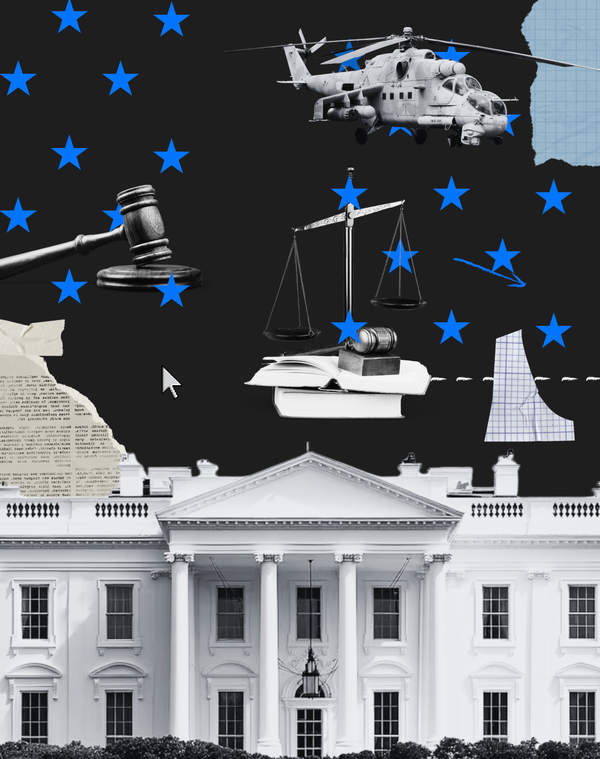
Tucked inside the House Judiciary Committee’s draft legislation for the upcoming “big beautiful” Republican reconciliation bill is language that would strip the Federal Trade Commission of its antitrust enforcement authority and hand it over to the Justice Department.
Committee Chair Jim Jordan has championed the shift in the past, as have other more populist Republicans like Sen. Mike Lee from Utah. Even the president’s self-described “first buddy” Elon Musk has endorsed the idea.
From an efficiency standpoint, the move makes sense on the surface. The U.S. currently has two antitrust enforcement agencies in the DOJ and the FTC. Why not merge their efforts and let one team lead the federal antitrust fight?
It turns out the FTC and DOJ have distinct powers that don’t quite overlap. Unlike the DOJ, the FTC can’t press criminal charges–so no, Sam Altman won’t be heading to jail anytime soon, regardless of former Chair Lina Khan’s concerns about his business practices. Instead, the FTC was given broader authority to investigate and penalize companies for harming consumers and the greater economy, even when no criminal statute is violated.
That authority comes from Section 5 of the FTC Act, which authorizes the agency to go after “unfair methods of competition.” The DOJ, by contrast, lacks the authority to investigate and sanction companies on those grounds– and this bill does not change that.
Moving the FTC’s antitrust authority to the DOJ would likely cause chaos, possibly resulting in the termination of the commission’s antitrust lawsuit against Amazon and every consent decree the agency reached under Section 5.
When it comes to new industries, like generative AI, the transfer of authority would kill any form of government enforcement for business practices that hurt consumers and the greater economy. In 2023, the Democratic-led commission invoked Section 5 to block Rite Aid from using facial recognition to identify shoplifters, after finding the software frequently returned false positives, especially for people of color.
But the FTC’s use of its authority to regulate AI companies didn’t stop when President Trump took office. As recently as Monday, the agency used its Section 5 powers to sanction Workado– a company that claims to detect AI-generated content– for significantly overstating its accuracy. The current FTC, now composed entirely of Republican commissioners after Trump’s unlawful removal of the two Democrats, issued the order.
If Silicon Valley perceives the FTC as weakened, it may accelerate the use of tactics that skirt antitrust laws–such as “acquihiring,” where a tech giant hires away top talent from a competitor and then acquires a license to use the competitor’s intellectual property at a low cost. Another example is the complex web of AI investments, with Google, Microsoft, and Amazon pouring billions into potential rivals like OpenAI and Anthropic. These investments ensure that even if their own AI products fall behind, they still benefit from the industry’s success.
In its final days of Democratic leadership in January, the FTC released a report on those investments, hinting that at least some Democratic commissioners were prepared to pursue enforcement actions.
“The FTC’s report sheds light on how partnerships by big tech firms can create lock-in, deprive start-ups of key AI inputs, and reveal sensitive information that can undermine fair competition,” Khan said in a press release about the report.
Ultimately, it is unclear whether congressional Republicans– who have narrow margins to pass the bill–will accept the language that transfers authority from the FTC to the DOJ, or whether the Senate parliamentarian will deem the provision relevant to spending and revenue, a requirement for inclusion in a reconciliation package.
If successful, the move would be a major win for tech giants looking to exploit legal loopholes to boost their profits.

White House wishes:
Top White House takeaways:
- The White House continues to prioritize AI advancement over safety concerns, first by rolling back some regulations on self-driving cars, and now by exploring ways to integrate AI into K-12 classrooms.
- Despite removing safety guardrails, the White House appears intent on shaping AI according to its own ideological goals, firing hundreds of AI staff the Biden administration rushed to hire over the past two years and prioritizing efforts to eliminate so-called “woke AI.”
Tech industry tried reducing AI’s pervasive bias. Now Trump wants to end its ‘woke AI’ efforts: Republicans in Congress and the White House have increased pressure on tech companies to abandon efforts to prevent algorithmic bias, focusing instead on eliminating so-called “ideological bias,” a shift that could chill future DEI-driven AI initiatives. (AP)

